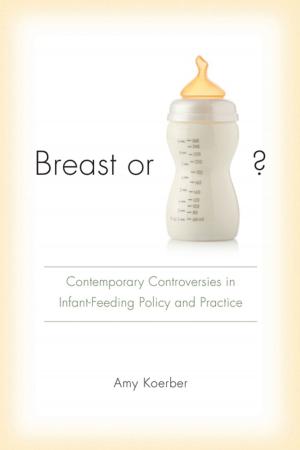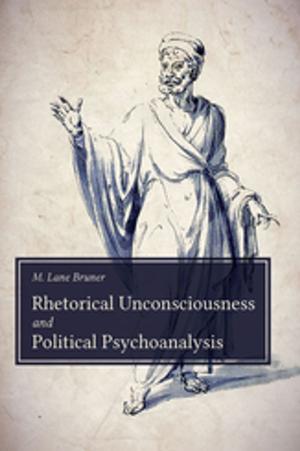Speaking Hermeneutically
Understanding in the Conduct of a Life
Nonfiction, Reference & Language, Language Arts, Public Speaking, Rhetoric| Author: | John Arthos, Thomas W. Benson | ISBN: | 9781611172065 |
| Publisher: | University of South Carolina Press | Publication: | September 10, 2012 |
| Imprint: | University of South Carolina Press | Language: | English |
| Author: | John Arthos, Thomas W. Benson |
| ISBN: | 9781611172065 |
| Publisher: | University of South Carolina Press |
| Publication: | September 10, 2012 |
| Imprint: | University of South Carolina Press |
| Language: | English |
John Arthos discovers and promotes an organic reciprocity between rhetoric as a humanist practice and hermeneutics as a theoretical comportment. Although these two traditions have a long and rewarding collaboration, it is only now that we begin to realize their potential for radically remaking the way we think and speak as social animals. Arthos marries the performative competencies of rhetorical practice with the circularity of hermeneutic understanding in a way that redefines the syntax of a humanist education in the twenty-first century. As a counter to the linear, technical rationalism that permeates common culture and educational praxis, Speaking Hermeneutically shows how a hermeneutically inflected rhetoric can lead to refashioning habits of thought and speech, the constitution of personal identity, the conventions of social engagement, and the deliberative practices that form the basis of public institutions. Arthos adapts the hermeneutics of Martin Heidegger, Hans-Georg Gadamer, and Paul Ricoeur to a series of classic rhetorical texts and landmark political moments, modeling the revitalized interchange of traditions in a way that will be accessible to scholars and students in both fields of inquiry.
John Arthos discovers and promotes an organic reciprocity between rhetoric as a humanist practice and hermeneutics as a theoretical comportment. Although these two traditions have a long and rewarding collaboration, it is only now that we begin to realize their potential for radically remaking the way we think and speak as social animals. Arthos marries the performative competencies of rhetorical practice with the circularity of hermeneutic understanding in a way that redefines the syntax of a humanist education in the twenty-first century. As a counter to the linear, technical rationalism that permeates common culture and educational praxis, Speaking Hermeneutically shows how a hermeneutically inflected rhetoric can lead to refashioning habits of thought and speech, the constitution of personal identity, the conventions of social engagement, and the deliberative practices that form the basis of public institutions. Arthos adapts the hermeneutics of Martin Heidegger, Hans-Georg Gadamer, and Paul Ricoeur to a series of classic rhetorical texts and landmark political moments, modeling the revitalized interchange of traditions in a way that will be accessible to scholars and students in both fields of inquiry.















